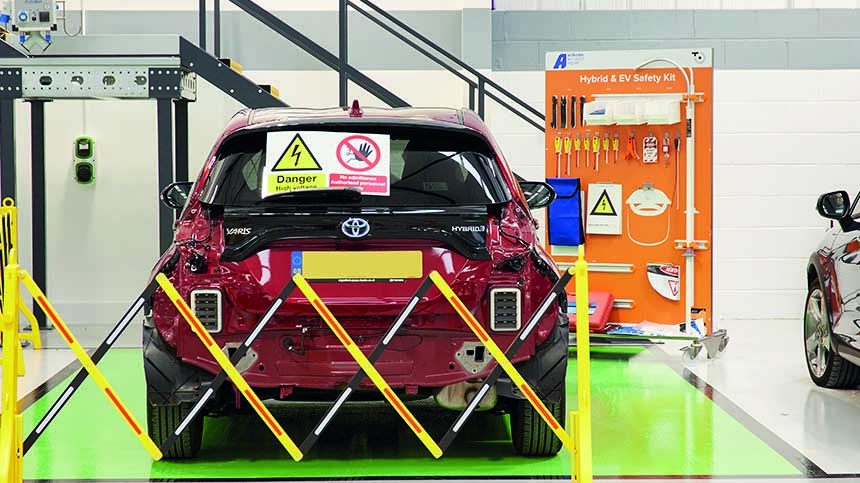
The growth of electric vehicles (EV) will have a wide-reaching impact on the repair industry, according to a report released by Activate Group.
It found that additional safety considerations linked to high-voltage vehicle batteries will affect the full repair cycle, from initial notification of an incident to recovery and repair.
Victoria Turner, Activate Group’s chief commercial officer, said, “Up until now, electric and hybrid vehicles have been a small proportion of the vehicles on the road. Projections for the next 10 years suggest that EV adoption will grow rapidly. In 2021 AFVs accounted for 19% of the claims we handled for vehicles under two years old.
“The ability to safely handle high-voltage batteries is quickly becoming a standard requirement throughout the repair supply chain. In partnership with our suppliers, we’ve worked to ensure that we have UK-wide EV capability to handle current demand and prepare for future growth.
“This report brings our research together to highlight the updated processes, training and equipment needed to prepare for changing fuel trends.”
The report combines data from the 100,000-plus claims handled by Activate Group in 2021 with expert insight from the business’ leaders and supplier partners.
While some areas of the repair cycle will need relatively small changes, such as a simple tweak to the questions asked when an incident is reported to check for battery damage, others require more significant investment.
Anyone working with a high-voltage battery needs specific training and equipment to keep them safe.
Activate Group’s 2021 data shows that, while EVs appear to be involved in less incidents, a ratio of 1.8 compared to 2.7 for combustion engine vehicles, they currently take longer to repair. The average key to key time for AFVs was 1.5 days longer than their combustion engine counterparts in 2021. Several factors came together to drive this trend including parts availability and additional health and safety measures in the repair process.
Turner said: “New technology often adds complexity at first, and as the EV market matures it’s likely that parts order times will fall in line with other fuel types. However, some additional time is directly linked to the high-voltage battery, which often needs to be powered down or even completely removed to allow a safe repair.”
The report concludes by calling for further collaboration across the supply chain to build a clear picture of the full impact of high-voltage batteries.
Turner said: “Vehicle technology is evolving at pace. Businesses that have not yet invested in EV capability need to do it quickly to avoid being left behind as demand increases over the months and years ahead.”








